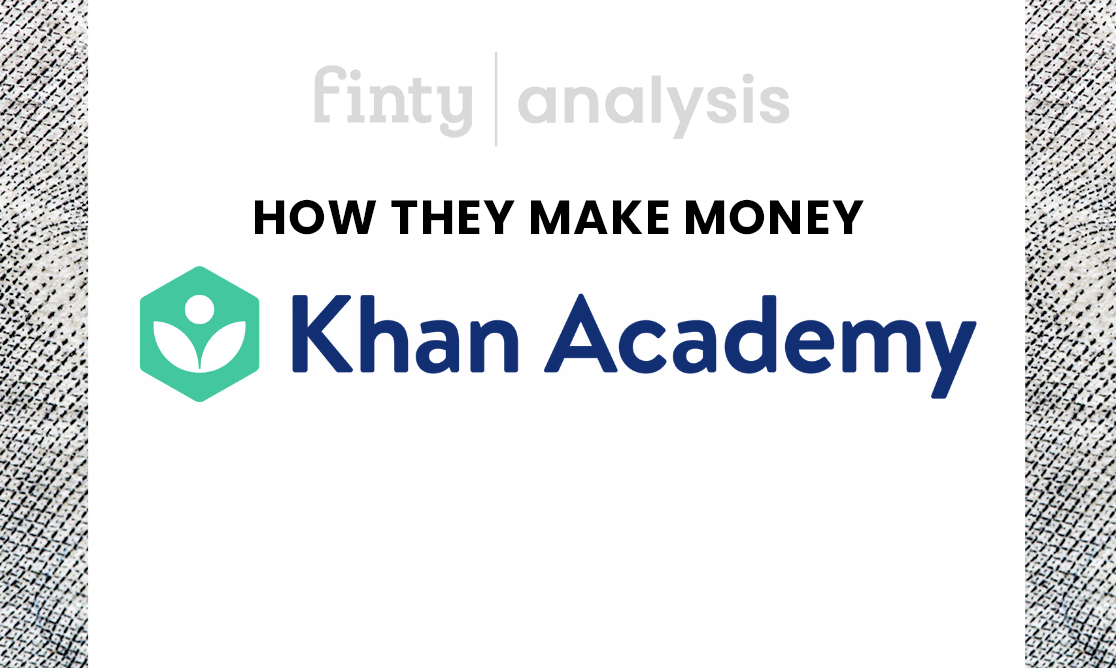- Khan Academy allows anyone, anywhere in the world, to get a high-quality education, regardless of socioeconomic status.
- Khan Academy is one of the leading online learning platforms in the world, yet it’s a nonprofit.
- How does Khan Academy make money when it doesn’t charge students or teachers anything?
Salman "Sal" Amin Khan founded Khan Academy in 2008. The company has headquarters in Mountain View, California. Khan academy saw rapid growth over the first decade of its launch, receiving donations and funding from top-level donors like the Bill and Melinda Gates Foundation.
Khan Academy enables anyone, anywhere in the world, to gain access to high-quality education across a huge range of subject matters, from math and arts, medicine to economics, physics to coding. All students need is an internet connection and a device.

Coming up next
What does Khan Academy do?
Khan Academy is a nonprofit organization. The company aims to empower people from low-income communities with high-quality educational materials available through its website and YouTube channel.
The company doesn't run any ads on its YouTube, giving students unfettered, uninterrupted access to learning materials.
Khan Academy has more than 50 million registered students, offering an online video library, tests, and practice activities.
The platform is accessible in more than 190 countries providing world-class, affordable education to anyone at no charge to the learner.
How does Khan Academy work?
Khan Academy receives support from its donors. This nonprofit organization produces educational videos on subjects, including mathematics, computing, science, finance, art, and history.
Students can access the learning materials through the company's website or dedicated iOS and Android apps. It also has a thriving YouTube channel.
Course materials focus on educating the 18 year+ demographic, with its website and app providing educational activities complementing its YouTube videos.
Most videos are five to 20 minutes in length, relaying easily digestible information to students in a concise format.
The nonprofit provides video learning in 40+ languages, including English, Spanish, French, and Hindi.
How Khan Academy makes money
Khan Academy makes money by seeking donations from foundations and other charitable organizations.
It also receives grants from institutions and charges tuition fees for its Khan Lab School and SAT preparation courses.
Khan Lab School
The Khan Academy launched its "Khan Lab School" in 2014, with the Lab School offering a novel approach to its classroom-style learning system.
This private educational organization provides a unique educational experience for students aged five to 18 years.
The Khan Lab School is the highest earner in the company model. Enrollment fees are $22,000 to $29,000, depending on the courses selected by the student.
The company also offers financial aid to underprivileged students in emerging markets.
SAT Preparation Services
Khan Academy has a strong relationship with the College Board. This relationship led to Khan Academy offering its students SAT prep courses in 2014.
Khan Academy has access to real SAT questions, giving its students the edge they need to get the best SAT score possible.
The SAT preparation courses allow the company to identify issues in test configurations. As a result, the platform developed an advanced learning program for the SATs.
Khan Academy also offers software that analyzes a student's prep work, identifying weaknesses in the students' work.
Forbes states that Khan Academy grosses around $10 million per annum from its SAT prep services, including the Praxis and LSAT courses.
Donations
The bulk of Khan Academy's revenues come from donations and grants offered by large foundations and trusts. Ann Doerr, the wife of billionaire VC, John Doerr, was the first to make a donation to the organization.
After discovering the nonprofit and its value to the global community, Google and the Bill and Melinda Gates Foundations started funneling donations to the organization.
Khan continues to accept donations, but it doesn't let donors influence its educational strategy or business model.
Future growth engine
Khan academy is a nonprofit, and it reinvests its profits back into the company.
Khan operates a huge network of educators and staff members, using its income to pay its employees and educational partners.
The rest of the money goes into trusts and other ventures started by the company.
Competitors
Khan Academy competes with other online learning platforms for market share. Some of its top competitors include the following online learning platforms.
- Brilliant
- IXL
- BYJU’s
- Pluralsight Skill
- LinkedIn Learning
- Udemy
- Coursera
- Codecademy
- freeCodeCamp
- edX

